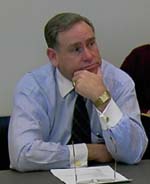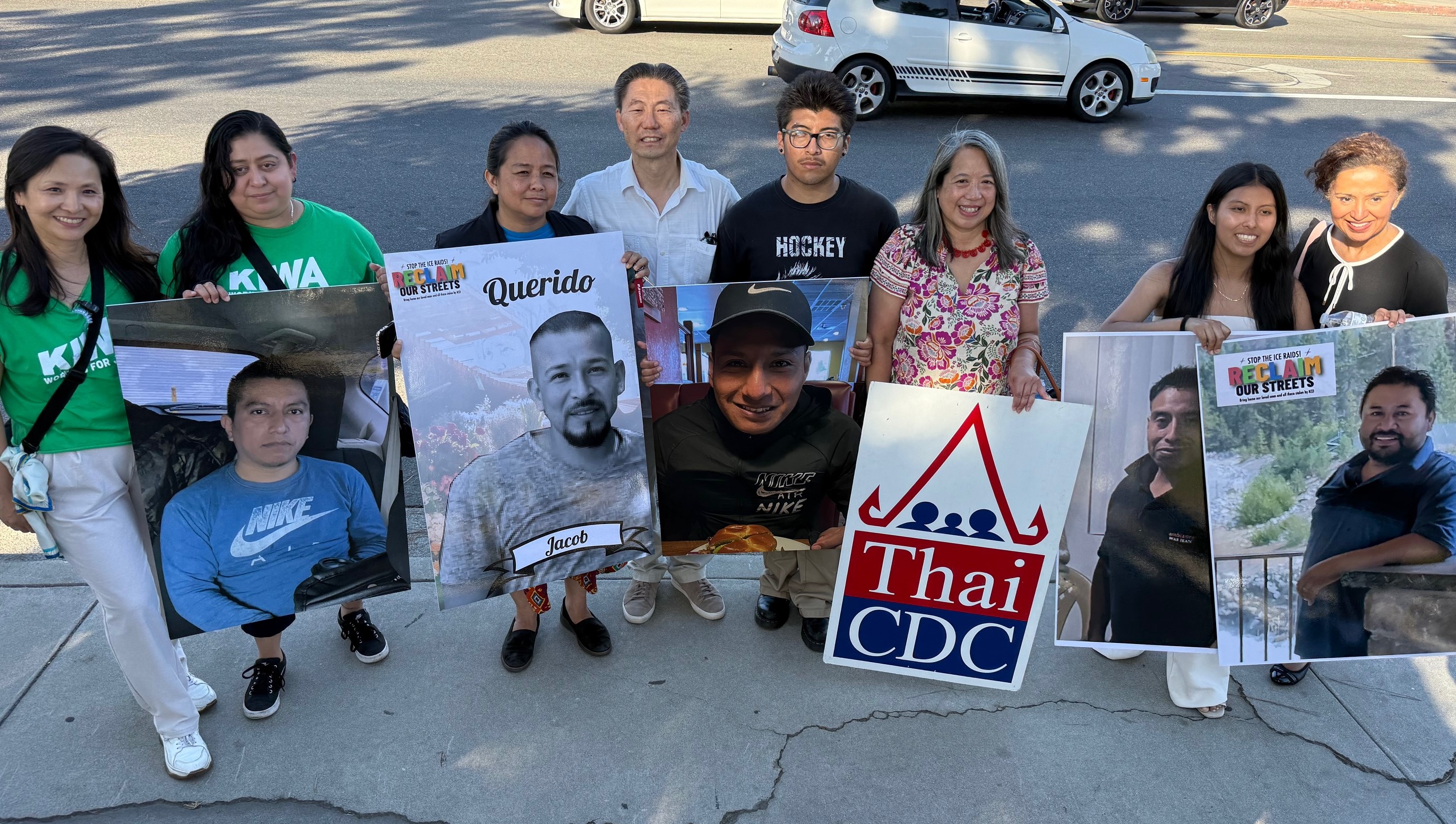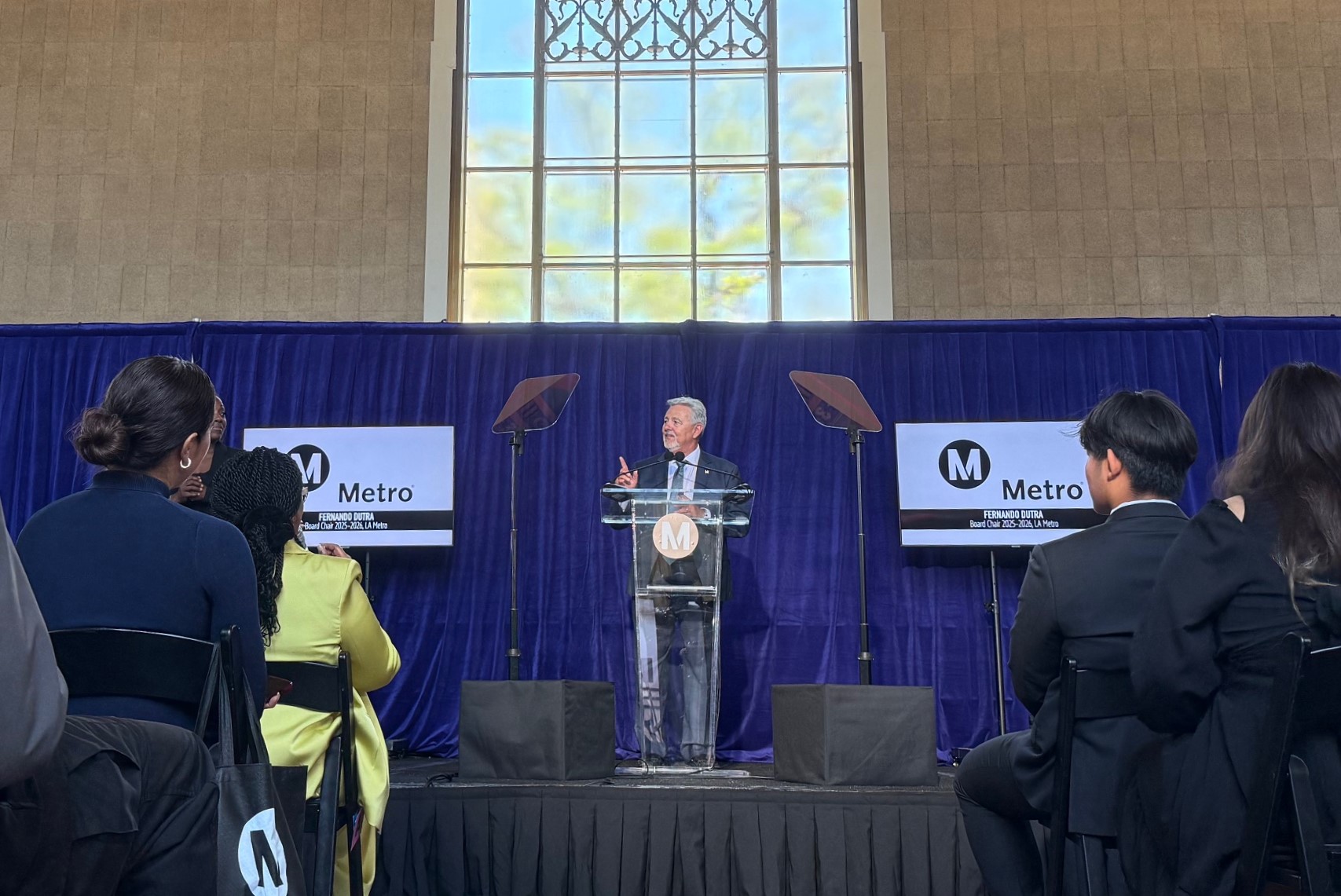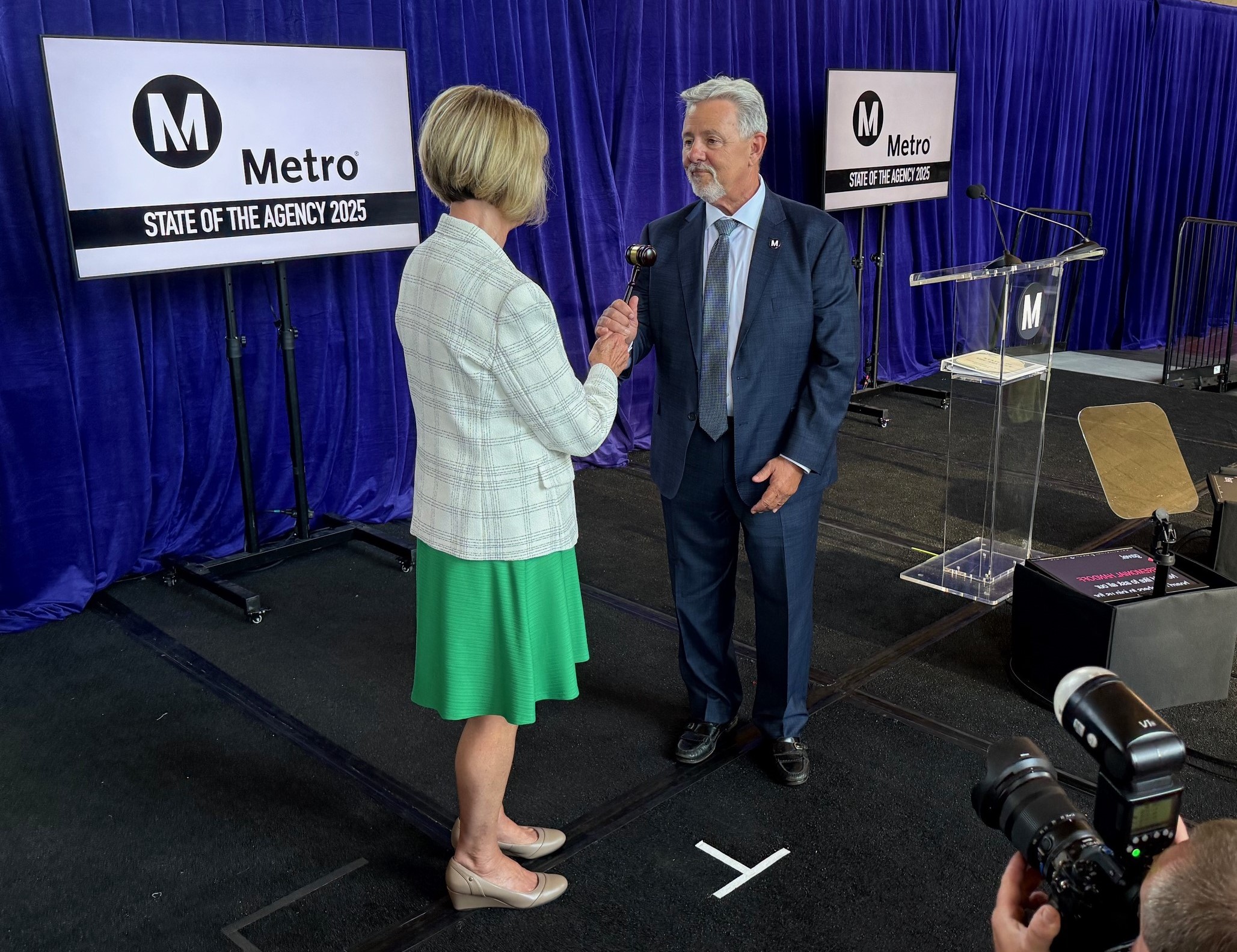A new motion by Valley Councilman Greig Smith would require the Los Angeles Department of Transportation to create a public outreach plan whenever new bicycle projects are proposed and would require the approval of the local Neighborhood Council before any new bicycle infrastructure would find its way onto the streets.

Why does Smith single out bicycling for a need for greater community outreach when LADOT has an abysmal reputation for public outreach when it comes to any of their "road improvements?" Apparently Smith is upset with some of the changes in his district, such as the new bike lanes on Reseda and Wilbur Boulevards. The resolution references the confusion created by the road diet on Wilbur Avenue as a reason for his resolution.
It should be noted that Wilbur Avenue underwent a road diet, where a four lane road was converted to a two lane one because the road was under capacity and the wide street was encouraging speeding traffic. After the diet, there was space for a bike lane, so they put one in. In other words, the bike lane followed the road diet, not the other way around.
I expected bike advocates to be outraged, but instead they surprised me by rejecting the story arc I had already written in my head. Outside of their annoyance with Smith's focus on bicycles most seemed supportive of forcing LADOT to engage local constituencies before moving on bike projects. Apparently, LADOT's history of opaqueness is a much greater concern than anti-cycling members of Neighborhood Councils throughout the city. As Joe Linton put it, "I think we actually do really well with Neighborhood Councils. Many of the NC's are frustrated that they can't get bike stuff in their areas."
Or, as Stephen Box, who is both a powerful advocates for cyclists and Neighborhood Councils, put it:
Avoid using the word "bicycle" and the cycling community will have allies throughout LA. Lose the word "Bicycle" and enhance the Smith Proposal so that any "improvements" including crosswalk removals and speed limit increases goes to the community first. Even at the last Los Angeles Bicycle Advisory Committee, the LADOT again repeated that "LA is built out and there is no room unless motorists lose a travel lane or parking."
It is imperative that this topic stay on LADOT performance and that the win-lose paradigm end.
Now is the time to force the LADOT to own cut-through traffic, engineered conflict, neighborhoods under siege, kids that can't walk to school, increasing speed limits, traffic fatalities, and all of the dark side.
Now is the time for the cycling community to own "transportation solutions" and stop being the adversaries in NC battles.
Instead of Smith's motion being a divider between cyclists and neighborhood activists, it could end up being a unifier. One Neighborhood Council Board Member who is sympathetic to bicycle infrastructure wrote that while he understood cyclists' concerns, it was still a good thing to get Neighborhood Councils involved in the planning process. He also argued that if this process is put in place for bikes, it could eventually go into place for other types of road projects, creating a "backdoor M.O.U."
The issue of a "Memorandum of Understanding" between the LADOT and Neighborhood Councils has been a long and contentious one. Basically, an "M.O.U." is a statement between two bodies on how they interact and communicate. It seems a simple matter for a city agency to put on paper a policy for how it communicates with Neighborhood Councils, but LADOT has resisted at every turn. Neighborhood Councils have M.O.U.'s with other city agencies including the DWP.
It appeared as though the LADOT was finally going to step up, after being embarrassed at a City Council hearing for their poor outreach, and sign an M.O.U. in January of 2009. Eleven months later, LADOT General Manager Rita Robinson went to a meeting of Neighborhood Council leaders and walked back from the MOU before it was signed blaming the budget and a the City Council for her inability to promise her department could do basic outreach.
When I asked Council Man Bill Rosendahl's office why they would second this resolution, they responded that a second doesn't always mean there is support for the motion, just that it deserves being discussed. This motion is seconded by both Rosendahl and Paul Krekorian, two council members who have emerged as strong defenders of cyclists rights. Just like Box and Linton and a handful of other advocates, they think it's time to talk about how the LADOT runs over communities in their haste to "improve" our streets.






